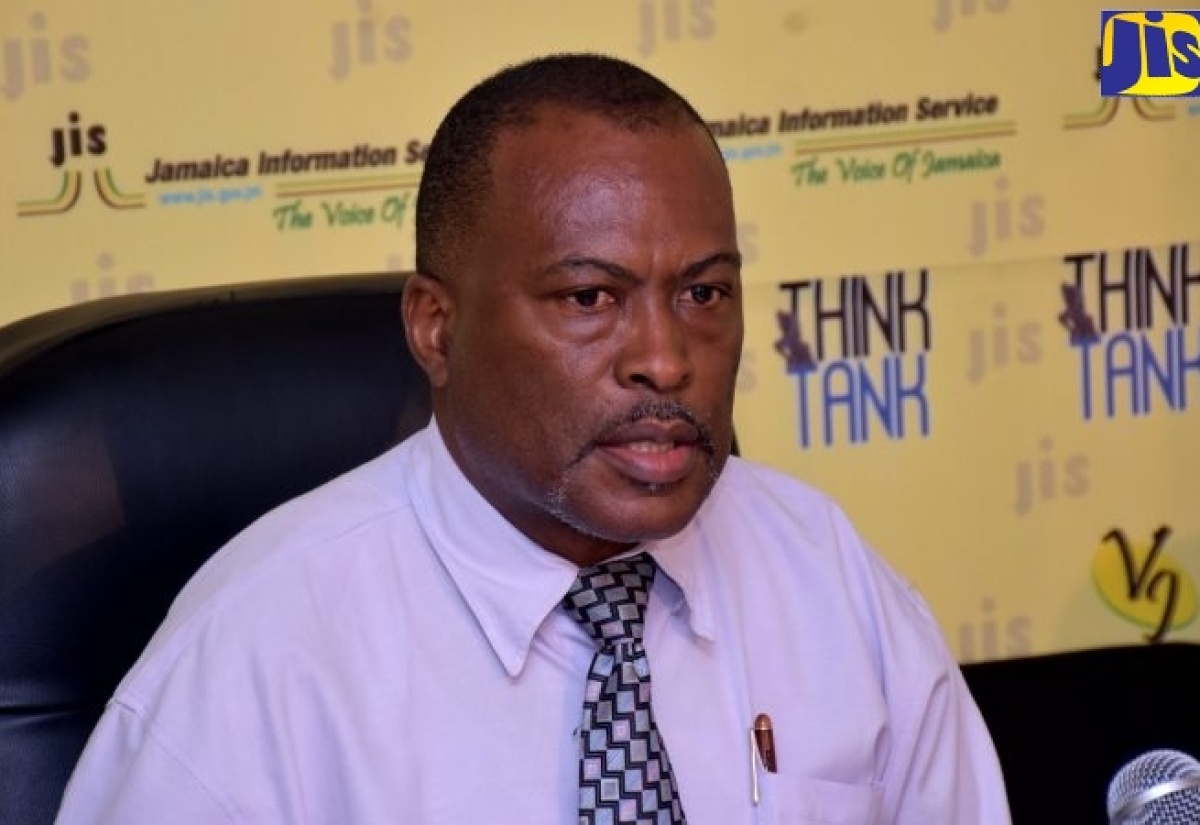Limit Overexposure to News About Hurricane Devastation to Safeguard Mental Health
By: , November 24, 2025The Full Story
Persons struggling with feelings of stress and anxiety in the aftermath of Hurricane Melissa are being urged to limit their exposure to excessive news about the destruction, including social media content, to safeguard their mental well-being.
Director of Mental Health and Substance Use Services in the Ministry of Health and Wellness, Dr. Kevin Goulbourne, says that the impact of the hurricane has been devastating, with loss of lives, property and livelihoods and overexposure to images of the disaster can lead to stress, anxiety, and depression.
“You don’t want a person to be, on an hourly basis, consuming this, because this will cause one to feel… that this problem is so big, that you feel overwhelmed and become anxious as if there’s no way out. So, one wants to limit exposure to videos and reports of what is happening. Ensure one maintains connection with family and friends, check up on each other and so on, and provide support for each other,” he said in an interview with JIS News.
The Director advises that, to avoid constant exposure to news, persons should try to maintain a normal schedule, speak to friends and family and engage in constructive activities such as exercise to manage stress.
He urges persons to focus on the positives, including the coming together of individuals, entities and communities to support those in need.
“People are trying to provide resources for persons to recover – physical relief, food, water, clothes. We need to be able to provide temporary shelters for persons. It may not be adequate but it’s being provided and brings some sense of hope. The purpose is to recognise that there are also sources of help available,” he says.
Dr. Goulbourne is encouraging individuals visiting communities and shelters to provide relief for affected persons to use the opportunity to ascertain how the victims of the hurricane are coping.
“If persons are not coping, work with them to get further emotional and mental support,” he advises.
He is encouraging individuals who need support to call the Ministry’s helpline at 888-639-5433 for counselling 24 hours per day, seven days per week, or send text messages to 876-838-4897.
“We are trying to get [representatives] from Red Cross and other volunteers to really interact with persons, find out how they’re doing, try and see if we can help them to ventilate how they are feeling,” Dr. Goulbourne says.
“Hopefully, it will decrease the apprehension and the anxiety that sometimes may boil over into irritability and cause unnecessary friction and tension between persons,” he states.
The Ministry of Health & Wellness has embarked on a national mental health outreach following hurricane Melissa to provide psychological support to affected individuals and communities, particularly in the most impacted parishes.
Mental health professionals, including counsellors and social workers, are being mobilised to assess needs, provide psychosocial support, and address the trauma caused by the hurricane, with ongoing assessments and partnerships with organisations like the Pan American Health Organization (PAHO) and the United Nations Children Fund (UNICEF).
In addition to professional help, the Ministry encourages community support and emphasises self-care strategies to help people cope.
Persons are advised to reach out for support, whether from a family member, friend, or a mental health professional if they are feeling distressed; focus on self-care by getting enough rest, staying hydrated, eating nutritious food, and engaging in calming activities when possible; and return to a normal routine as soon as possible to help restore a sense of normalcy, particularly for children.
The Ministry also encourages persons to check in on your neighbours and support those who are struggling; take breaks from media coverage of the hurricane; and focus on the things to be grateful for, such as safety or community support.
The PAHO notes that reactions such as sadness, anxiety, irritability, and difficulty concentrating are common and normal after a disaster, but “with time and support, these feelings can be overcome”.
“Return to daily routines as much as possible, as this can provide a sense of normalcy and control. Minimise watching, reading, or listening to news that cause anxiety or distress and seek information and updates at specific times during the day from trusted sources,” PAHO emphasises.
Where a person’s distress does not decrease, or gets worse, or interferes with daily functioning after about a month, it is important to seek support from health professionals, social workers, or trusted individuals.
The organisation notes that connecting with others and participating in social activities, as well as working together on community clean-up projects can help with coping. It is important to pay attention to vulnerable groups and to keep children safe, listen to them, and maintain their routines.


